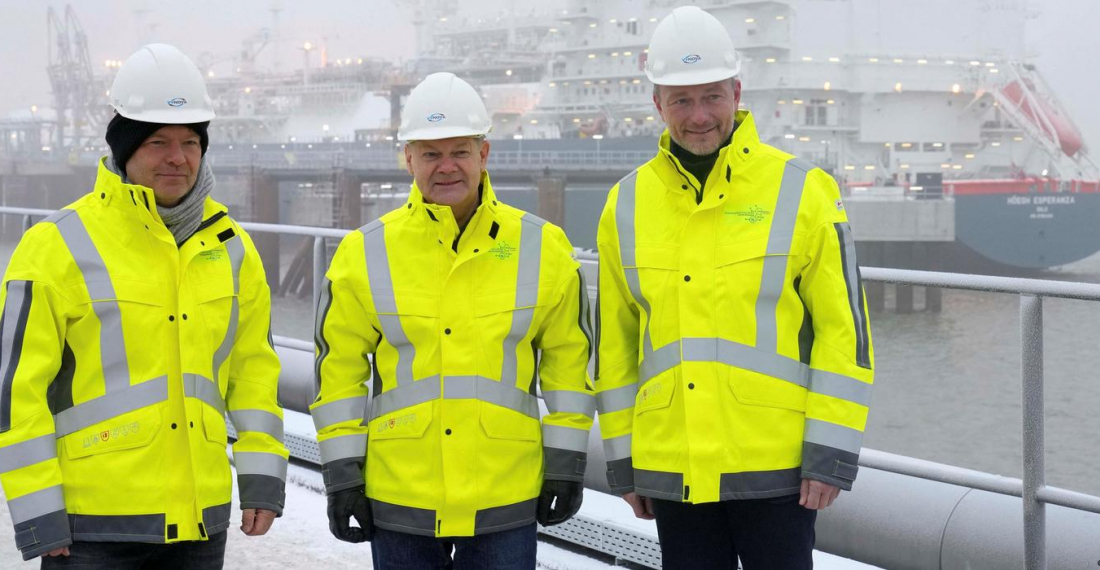German Chancellor Olaf Scholz and other ministers inaugurated on Saturday morning (17 December) the country's first liquid natural gas (LNG) terminal in Wilhelmshaven in northern Germany, a project expected to supply around 6% of the country's energy demand. At the inauguration, Scholz stated that the rapid completion of the plant demonstrates that Germany's powerful economy will remain resilient in the face of the energy crisis compounded by the conflict in Ukraine.
The facility was built in a record time of 10 months, providing a model for future infrastructure projects. Once the LNG is delivered by sea, it is converted into gas at the floating terminal, before being pumped into the German natural gas grid.
The terminal in Wilhelmshaven is the first of five planned for completion by the end of 2023, which, together, are expected to be able to supply around one-third of Germany's natural gas requirements, following the discontinuation of gas supplies from Russia.
source: commonspace.eu with agencies
photo: German Chancellor Olaf Scholz at the inauguration on Saturday, 17 December. DW






